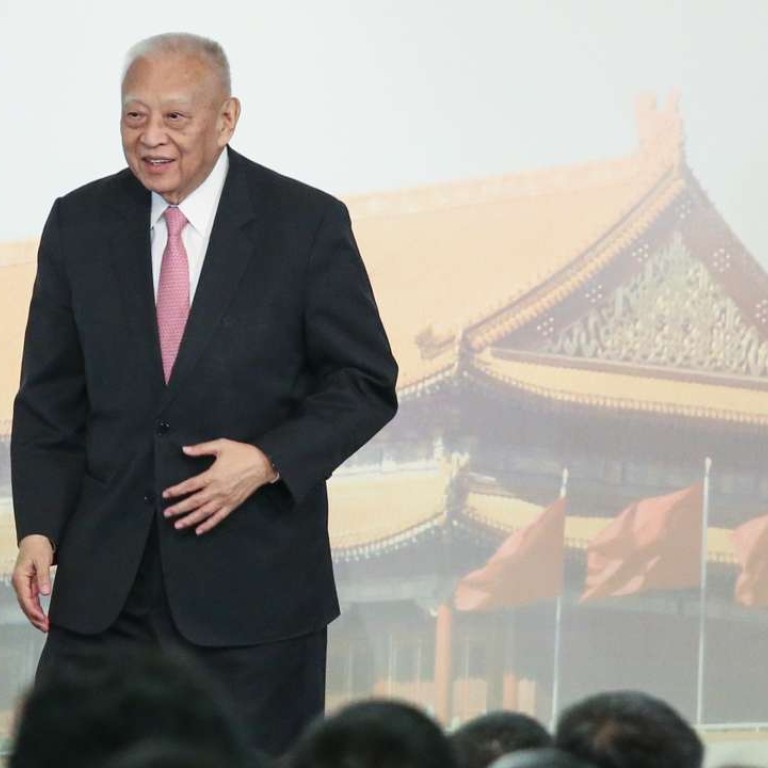
Former HK chief Tung lays out the case for consultative democracy, Chinese style
CPPCC vice-chairman says government system should be judged by benefit to people and nation
Former Hong Kong chief executive Tung Chee-hwa leapt to the defence of the Chinese style “consultative democratic system” yesterday, saying competitive elections were not the sole yardstick for democracy and could create divisions.
Addressing a forum on China’s social and political system organised by the Our Hong Kong Foundation, a think tank he established, Tung, 79, warned that competitive elections could trigger conflicts between various groups, races, religions or peoples, or lead to confrontation between the rich and the poor.
When we take competitive elections as the key part of, or even the only measurement for, democracy, the judgment itself will undoubtedly be an erroneous one
That could result in clashes between different camps or even divisions in a country in the absence of a shared conviction and sense of national identity. “We have no intention to deny the importance of democracy, but when we take competitive elections as the key part of, or even the only measurement for, democracy, the judgment itself will undoubtedly be an erroneous one,” Tung said.
Tung’s comments come three months ahead of the election for Hong Kong’s next chief executive.
He declined to comment on Beijing’s response to Financial Secretary John Tsang Chun-wah’s resignation or whether he would support a bid for the top job by Chief Secretary Carrie Lam Cheng Yuet-ngor.
In contrast to the universal suffrage, separation of powers and a multi-party system of “Western-style” democracy, President Xi Jinping has tried to promote “consultative democracy” – or a system of consultative conferences – to foster public consensus.
Tung, vice-chairman of the Chinese People’s Political Consultative Conference, said the value of a system of government should be judged by its benefits to the country and its people, especially whether it enabled people to lead a stable, comfortable and prosperous life.
Tung said India, which adopted the Western parliamentary system, had a per capita GDP that was only one-fifth of that of China’s, even though both countries embarked on development programmes in the mid-1980s.
Hong Kong-based veteran China watcher Johnny Lau Yui-siu said Tung had delivered an accurate account of the views of Beijing’s leaders on elections.
“For decades, Beijing has regarded competition as something controllable,” Lau said. “It is, after all, progress for the central authority when it allows competitive elections, although it rules out competition playing a major part in the election. Of course, this kind of practice has nothing to do with free elections in a real sense.”
Why doesn’t Tung quote North Korea as an example?
Chinese University political scientist Ma Ngok said there was no point calling a political system “democratic” when it was rarely adopted by the rest of the world. “Why doesn’t Tung quote North Korea as an example?” he said.
He said South Africa managed to settle racial conflicts when it came to democracy and abolished its decades-long notorious apartheid system, after years of negotiations.

